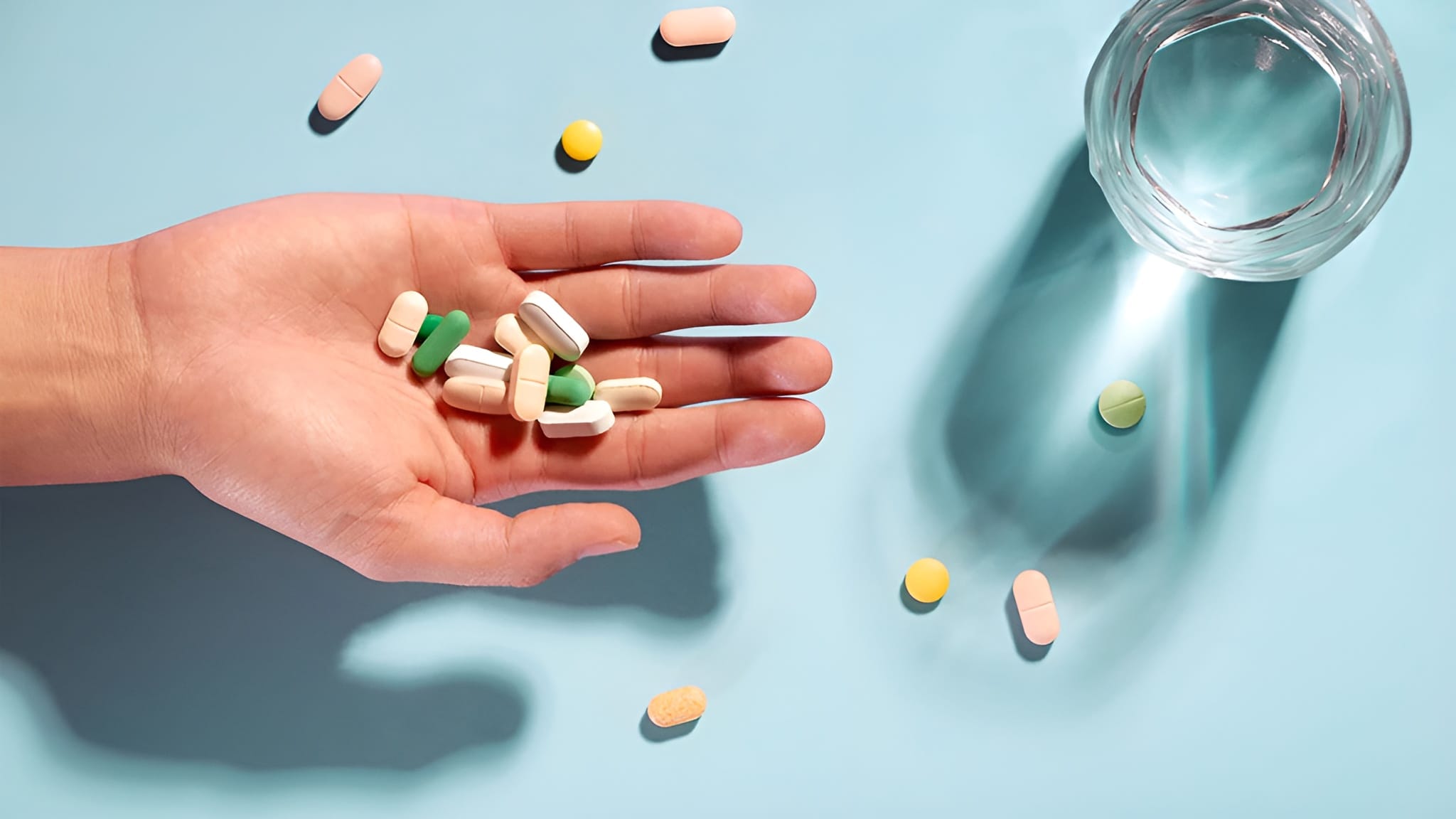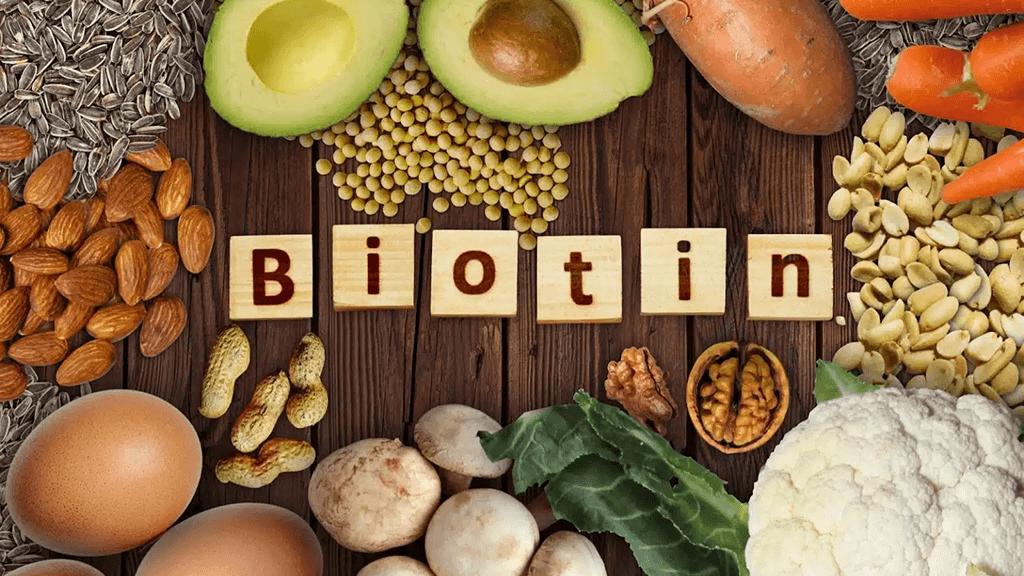Feeling drained and down? You’re not alone. In today’s fast-paced world, it’s easy to feel exhausted and discouraged, so today we will discuss the best vitamins for energy and depression. That’s why I created this website – to share information that has helped me on my journey to better health and well-being.
If you’re looking for natural ways to boost your energy and fight depression, you’ve come to the right place. There are many vitamins and supplements that can help you regain vitality and improve your mood, all without the unwanted side effects of conventional treatments.
Table of Contents
The Vitamin-Mood Connection
It’s important to understand that vitamins for energy and depression can play a significant role in your overall mental and physical health. By addressing potential deficiencies, you can support your body’s natural ability to combat fatigue and low mood.
Here are some of the most effective vitamins for energy and depression:
1. B-Vitamins: Essential for a Healthy Mind
According to Dr. Daniel K. Hall-Flavin, deficiencies in B vitamins like B12, B6, and folate can contribute to depression.
- B vitamins are crucial for brain health and nerve function.
- B6 plays a vital role in proper nerve cell functioning.
- B3 helps produce serotonin, a neurotransmitter that regulates mood.
- B12 is known to increase energy levels and overall well-being [1].
A comprehensive analysis suggests that long-term B-vitamin supplementation can be beneficial in managing depression [2].
B-Vitamins are often associated with uplifting, energizing effects, even in our articles on B‑vitamins for energy.
Many people like to pair the uplifting effects of B-vitamins with the adaptogenic calm energy of Ashwagandha.
2. Vitamin D: The Sunshine Vitamin for a Brighter Mood
It’s no secret that spending time outdoors can boost your mood. This is partly due to vitamin D, which your body produces when exposed to sunlight. But the connection between vitamin D and mental well-being goes deeper than that.
- Studies have shown that vitamin D can provide significant relief for people with major depressive disorder, especially those with a vitamin D deficiency [3].
- Vitamin D helps regulate calcium levels in the brain, improving healthy signaling and reducing the impact of depression [4].
- It also has immunomodulatory and anti-inflammatory effects and can influence neurotransmitter production [5][6].
Learn more about vitamin D for fatigue and energy.
We’re happy to offer our own Vitamin D3 formulation to help keep a bit of that sunshine with you at all times.
3. Zinc and Magnesium: Mineral Powerhouses for Mental Wellness
Magnesium and Zinc are essential minerals that play vital roles in various bodily functions, including mood regulation.
- Zinc is crucial for immune function and has been shown to have antidepressant effects. [8]
- It also protects the brain from inflammation-related degeneration.
- Evidence suggests that low zinc levels in the brain may be linked to depression and other mental health conditions [9].
- Magnesium can be depleted by factors like stress, alcohol consumption, caffeine intake, and excessive sugar intake.
- Magnesium deficiency can significantly impact mood and personality, leading to anxiety, depression, lack of interest, irritability, and even delirium [7].
Struggle with low energy or any of the above issues? Try our natural magnesium supplement.
4. Vitamin C: More Than Just an Immune Booster
Vitamin C is well-known for its immune-boosting properties, but it also plays a vital role in energy production and mood regulation. You may also be surprised to hear about vitamin C for stress recovery.
- A study of 139 students found a significant correlation between higher vitamin C levels and better mood [10].
- Vitamin C deficiency is often characterized by fatigue [11].
- Vitamin C is crucial for the production of neurotransmitters like dopamine and noradrenaline, which are essential for energy and well-being [12].
5. St. John's Wort: Nature's Antidepressant
St. John’s Wort is a popular herbal remedy often used to treat seasonal affective disorder (SAD) and mild to moderate depression.
- It acts similarly to SSRI antidepressants like Prozac, according to Daniel Kellman at Cancer Treatment Centers of America [1].
- However, be cautious if you’re already taking antidepressants, as St. John’s Wort can interact with these medications and potentially cause serious complications.
6. SAM-e: Supporting Neurotransmitter Production
SAM-e is a naturally occurring compound in the body that plays a crucial role in various cellular processes, including neurotransmitter synthesis [13].
- Inadequate neurotransmitter levels are a major contributor to mood disorders.
- One study found significant improvement in patients with depression who supplemented with SAM-e [14].
7. Omega-3 Fatty Acids: Nourishing Your Brain
Omega-3 fatty acids are essential for brain health and have been linked to improved mood and reduced depression symptoms.
- EPA (eicosapentaenoic acid), a type of omega-3, appears to be more effective than DHA (docosahexaenoic acid) in providing antidepressant effects. Consider choosing a supplement with a higher EPA to DHA ratio [15].
The best way to get clean Omaga-3s hands down is fish oil. Fish oil supplements provide plenty of omega‑3 for mood and energy.
Beyond Vitamins: A Holistic Approach to Depression
While vitamins for energy and depression can be incredibly helpful, it’s important to remember that they’re just one piece of the puzzle.
- Lifestyle Changes: Incorporate regular exercise, a balanced diet, stress management techniques (like meditation), and quality sleep into your routine.
- Social Support: Connect with loved ones, seek support groups, or consider professional therapy.
- Goal Setting: Revisit your goals and dreams, and take small steps towards achieving them.
Beyond vitamins, 5-HTP is a supplement which naturally modulates serotonin in the brain – great for mood.
Remember, overcoming depression is a journey, not a destination. Be patient with yourself, seek support when needed, and celebrate your progress along the way.
FAQ
Start with foundations: a quality B-complex (B12, B6, folate, B3), vitamin D, magnesium, zinc, vitamin C, and omega-3s (EPA-forward). Targeted options like SAM-e or St. John’s wort can be add-ons if appropriate.
Foundations can help in 2–4 weeks with steady use (B-complex, magnesium, vitamin C). Vitamin D and omega-3s often take 4–8 weeks. Mood-actives (SAM-e, St. John’s wort) may be noticed within 1–3 weeks if they’re a fit.
Keep it simple:
AM: B-complex, vitamin D (with a meal containing fat), omega-3s.
PM: Magnesium (often calmer at night).
Layer zinc with food if you need it. Add one mood-targeted option at a time (e.g., SAM-e) and give it a few weeks.
St. John’s wort can interact with antidepressants and many meds—get clinician guidance first.
SAM-e: use caution with bipolar spectrum.
Iron only if deficient.
Magnesium: check kidney issues.
If you use prescription meds (blood thinners, thyroid, etc.), ask your clinician before changes.
Low energy/mood can come from B12 or iron deficiency, thyroid issues, low vitamin D, poor sleep, stress, and more. If symptoms are persistent or severe, get labs and a personalized plan. If you ever have thoughts of self-harm, seek urgent help immediately.
Cites and Sources
No Citations
Show Citations
[1] - Sinrich, J. (2021, February 1). 10 vitamins for depression that could boost your mood. The Healthy. https://www.thehealthy.com/mental-health/vitamins-for-depression-boost-your-mood/
[2] - Almeida, O. P., Ford, A. H., & Flicker, L. (2015). Systematic review and meta-analysis of randomized placebo-controlled trials of folate and vitamin B12 for depression. International Psychogeriatrics, 27(5), 727–737. https://doi.org/10.1017/s1041610215000046
[3] - Menon, V., Kar, S. K., Suthar, N., & Nebhinani, N. (2020, January 6). Vitamin D and depression: A critical appraisal of the evidence and future directions. Indian journal of psychological medicine. https://www.ncbi.nlm.nih.gov/pmc/articles/PMC6970300/
[4] - Berridge, M. J. (2017). Vitamin D and depression: cellular and regulatory mechanisms. Pharmacological Reviews, 69(2), 80–92. https://doi.org/10.1124/pr.116.013227
[5] - Muscogiuri, G., Altieri, B., Penna-Martinez, M., & Badenhoop, K. (2015). Focus on vitamin D and the adrenal gland. Hormone and Metabolic Research, 47(04), 239–246. https://doi.org/10.1055/s-0034-1396893
[6] - Wierzbicka, J., Żmijewski, M. A., Piotrowska, A., Nedoszytko, B., Lange, M., Tuckey, R. C., & Slominski, A. (2016). Bioactive forms of vitamin D selectively stimulate the skin analog of the hypothalamus-pituitary-adrenal axis in human epidermal keratinocytes. Molecular and Cellular Endocrinology, 437, 312–322. https://doi.org/10.1016/j.mce.2016.08.006
[7] - Serefko, A., Szopa, A., & Poleszak, E. (2016). Magnesium and depression. PubMed, 29(3), 112–119. https://doi.org/10.1684/mrh.2016.0407
[8] - Zinc and depression. An update. (2005, December 1). PubMed. https://pubmed.ncbi.nlm.nih.gov/16382189/
[9] - Szewczyk, B., Kubera, M., & Nowak, G. (2011). The role of zinc in neurodegenerative inflammatory pathways in depression. Progress in Neuro-Psychopharmacology and Biological Psychiatry, 35(3), 693–701. https://doi.org/10.1016/j.pnpbp.2010.02.010
[10] - Pullar, J. M., Carr, A. C., Bozonet, S. M., & Vissers, M. C. (2018). High Vitamin C Status Is Associated with Elevated Mood in Male Tertiary Students. Antioxidants, 7(7), 91. https://doi.org/10.3390/antiox7070091
[11] - Levine, M., Conry‐Cantilena, C., Wang, Y., Welch, R. W., Washko, P. W., Dhariwal, K. R., Park, J. B., Лазарев, А. И., Graumlich, J. F., King, J., & Cantilena, L. R. (1996). Vitamin C pharmacokinetics in healthy volunteers: evidence for a recommended dietary allowance. Proceedings of the National Academy of Sciences of the United States of America, 93(8), 3704–3709. https://doi.org/10.1073/pnas.93.8.3704
[12] - Englard, S., & Seifter, S. (1986). The biochemical functions of ascorbic acid. Annual Review of Nutrition, 6(1), 365–406. https://doi.org/10.1146/annurev.nu.06.070186.002053
[13] - Galizia, I., Oldani, L., Macritchie, K., Amari, E., Dougall, D., Jones, T. N., Lam, R. W., Massei, G. J., Yatham, L. N., & Young, A. H. (2016, October 10). S-adenosyl methionine (SAME) for depression in adults. The Cochrane database of systematic reviews. https://www.ncbi.nlm.nih.gov/pmc/articles/PMC6457972/#CD011286-bbs2-0088
[14] - Cuomo, A., Crescenzi, B., Bolognesi, S., Goracci, A., Koukouna, D., Rossi, R., & Fagiolini, A. (2020). S-Adenosylmethionine (SAMe) in major depressive disorder (MDD): a clinician-oriented systematic review. Annals of General Psychiatry, 19(1). https://doi.org/10.1186/s12991-020-00298-z
[15] - Mischoulon, D., MD PhD. (2020, October 27). Omega-3 fatty acids for mood disorders. Harvard Health. https://www.health.harvard.edu/blog/omega-3-fatty-acids-for-mood-disorders-2018080314414




